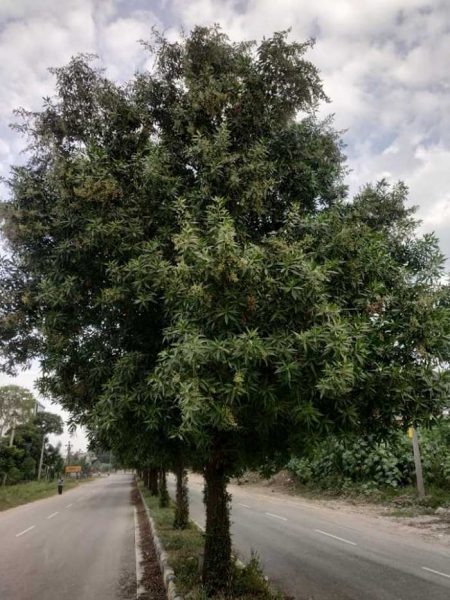
Udaipur : Nature lovers and activists have raised their concerns over the mass level plantation of exotic varieties by the district administration. Large number of Conocarpus lining up on the road dividers, though look beautiful but would prove a major threat to the biodiversity of the area in future, they warn.
Experts have pointed out the disadvantages of such plantation. “ Local and native species of trees, shrubs and herbs that are conducive to the local climate, weather, soil, resident and migratory birds and animals, should be planted in greening the urban and peri-urban areas mentioned in the master plan of cities and towns” Anil Mehta, a water scientist said. He said many local tree and shrub species have contributed effectively to absorption of toxic and harmful material from the lakes, and rivers of Udaipur, thereby reducing their pollution. Sunil Dubey, member of many IUCN (International Union for Conservation of Nation) commissions, said there are some 80 alien species in Rajasthan. Crofton weed, Vilayati Tulsi, Lentana, Water Hyacinth, Mesquite, Congress grass etc are the potential invaders. Conocarpus is the latest exotic threat and long term persistence of such alien species degrades the bio diversity and integrity of the affected natural areas, disrupts natural water and nutrient cycles and patterns causing climate change.
Additional Principal Chief Conservator of Forests, Venkatesh Sharma expressed concern over the fact that due to over use of concrete and cement, there is little space left for natural regeneration of the trees and vegetation in urban areas. He said the trees and vegetation planted and found along the road side and on the median and the public parks and left over empty spaces contribute very much to make the cities and towns livable. These trees and vegetation not only contribute to the health of the community but also serve as shelter and habitat for birds, animals and insects, making the area vibrant and lively.
Native and local species well adapted and suited to the local environment also absorb the toxic elements in air and water thereby making it less polluted. Local species like Amaltas (cassia fistula), Bad (ficus bengalensis). Peepal (ficus religiousa), Neem (adazirachta indica), Aonla (emblica officianalis), Ber (Zizyphus spp), Semal (Bombax Ceiba), Aam (Mangifera Indica), Belpatra (Aegle Marmelos) etc not only are useful for the environment and the birds and animals but they also provide useful medicinal produce for the society. O P Sharma, retired IFS officer suggested planting of Sehjan (Moreinga oliefera), Meeta Neem ( Carraya spp), and fruit trees on the vacant spaces and along the road sides.
